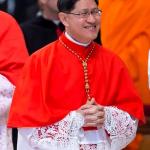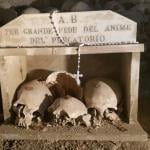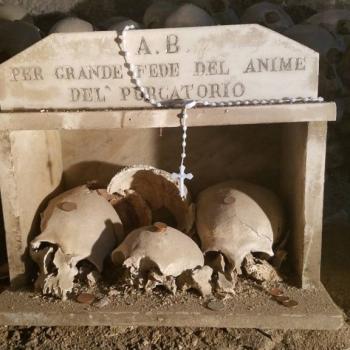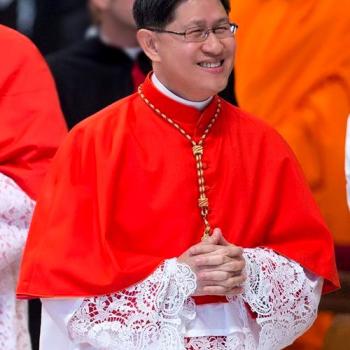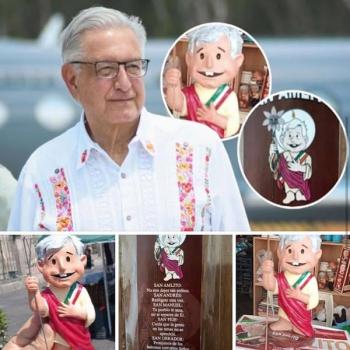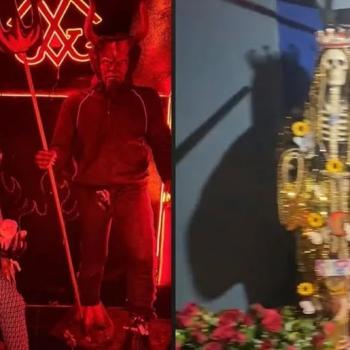When white smoke curled above the Sistine Chapel on May 8 and Cardinal Robert Francis Prevost stepped onto the loggia as Leo XIV, the jubilation in St. Peter’s Square masked a deeper story of why the College of Cardinals reached for a Chicago‑born Augustinian missionary to lead a 1.4 billion‑member church at a moment of geopolitical fracture and relentless Catholic attrition in the Americas. Five intertwined factors—his unapologetic pro‑migrant advocacy, open opposition to the Trump‑Vance brand of jingoism, a social vision noticeably to the left of most U.S. bishops, an evangelizing pedigree forged in Peru amid dramatic Latin American defections, and a cosmopolitan, polyglot persona that dramatizes the antithesis of “America‑First” isolationism—combined to clear Prevost’s path to become history’s first American pope.
Migrant Ministry
Prevost’s inaugural balcony address—delivered first in Spanish, then Italian, and later in English—was studded with Franciscan verbs of welcome: acoger, acompañar, amar (to welcome, accompany, love). In recent years he had laced his personal X account with critiques of U.S. border crackdowns and with retweets of shelters such as Casa del Migrante in Tijuana, insisting that “faith begins where we meet the stranger.” His February repost of a National Catholic Reporter headline—“JD Vance is wrong: Jesus doesn’t ask us to rank our love for others”—signalled a readiness to rebuke political power when it weaponizes fear of immigrants.
That pastoral track record resonated with a global electorate whose dioceses on every continent are grappling with refugee flows—from Venezuelans in Bogotá’s slums to Rohingya in camps outside Dhaka. Cardinals from the Global South concluded that a pope fluent in the spiritual grammar of displacement could incarnate Catholic universality more credibly than candidates tethered to fortress mentalities. Prevost’s first‑day pledge to be “a bridge, not a wall” drew an unmistakable contrast to Donald Trump’s 2016 rallying cry and signalled continuity with Francis’s own borderland blessings at Ciudad Juárez.
Least American of the Americans
While the U.S. episcopate tilted rightward during the culture‑war decades, Prevost cultivated a reputation as the “least American of the Americans.” Missionary decades in Peru’s arid north, where he founded micro‑credit co‑ops for women and trained lay catechists, immunized him against the partisan habits that dominate many U.S. chancery offices. The Guardian captured the consensus among Vatican observers: “moderate, good‑humoured, capable of mediating between factions,” qualities that contrast sharply with the more confrontational style of several high‑profile U.S. prelates.
On hot‑button questions—immigration, climate, gun violence—Prevost routinely echoed Pope Francis, even as a plurality of his American brother bishops emphasised abortion and religious‑liberty litigation. That profile made him attractive to cardinals weary of the U.S. hierarchy’s internecine battles yet eager to tap the managerial expertise Prevost honed as prefect of the Dicastery for Bishops. His political centrism—conservative on sacramental discipline, progressive on social ethics—mirrored the balancing act many cardinals believe is required to steady a polarized church.
Evangelization – Job One
In a 2023 Vatican News interview, Prevost lamented that bishops often become “managers of structures rather than heralds of Christ,” adding, “Our job is to enlarge the tent so everyone knows they have a home in the Church.” That line echoed in the Aula Paul VI during pre‑conclave “general congregations,” where several Latin American cardinals sounded alarm bells about evangelical and secular gains ripping through their flocks. Brazil—still the planet’s largest Catholic nation—now counts Catholics as a minority for the first time, and Pew data show Hispanic Catholic identification in the United States plummeting from 67 percent in 2010 to 43 percent in 2022.
Prevost’s missionary résumé—he planted parish communities in Peru’s Chiclayo archdiocese that multiplied three‑fold in 15 years—persuaded electors that he could re‑ignite a preaching culture grown complacent under decades of clerical maintenance mode. His election thus telegraphs alarm: if a Latin American pope could not halt hemorrhage in his own continent, perhaps an American steeped in Latin America’s religious free market can.
Resurrecting Latin America
The cardinals’ focus on evangelization is inseparable from the raw numbers. The landmark Pew survey of religion in Latin America, for which I was the lead academic consultant, revealed that just over half of adults now identify as Catholic, down from nearly 90 percent in the mid‑1970s. Pentecostal churches, with their nimble house‑group networks and prosperity gospel, out‑recruit Catholic parishes by margins that shock episcopal conferences. Prevost’s capacity to preach in the idioms of Andean popular religion—Marian processions, Afro‑Peruvian rhythms, fiestas patronales—was cited by at least three electors in comments to journalists as a decisive asset.
Equally important, his Augustinian spirituality rejects cultural triumphalism in favour of journeying with a wounded people—an optic that dovetails with the synodal vision of Francis but promises a fresher face. Many in Rome believe the new pope will convene a continental mission congress within a year, tasking Latin American bishops to craft parish‑level strategies rather than rely on papal popularity to stem defections.
Polyglot Cosmopolitan
If Trump’s jingoist rhetoric lionized monolingual swagger, Leo XIV embodies a border‑crossing Catholicity: English, Spanish, Italian, French, Portuguese, plus reading knowledge of Latin and German. His balcony greeting—“Paz, pace, peace”—was less flourish than blueprint, signalling that global encounter, not nativist retrenchment, will frame his papacy. Cardinals betting on Prevost calculated that a pontiff fluent in the languages of 70 percent of the world’s Catholics can model the cultural humility and listening posture the synodal process demands. And his diverse family ancestry of Afro-Caribbean, Spanish, Italian and Quebecois complement his multilingualism.
That cosmopolitan ease also answered the conclave’s geopolitical worry: a brush‑fire of Christian facism, from Washington to Warsaw to São Paulo, that invokes the Gospel to justify policies antithetical to it. Prevost’s willingness to call out former President Trump’s “build the wall” slogan as inimical to Catholic social teaching, and his public chastising of Vice President Vance’s hierarchy‑of‑love immigration theology, framed him as an antidote to nativist populism.
Conclave Coalition
Veteran Vatican‑watchers note that Leo XIV’s triumph depended on an unusual coalition of Latin American and African cardinals who admire his missionary instincts, European reformers alarmed by U.S. culture‑war funding in Rome, and Asian cardinals impressed by his linguistic nimbleness. The fourth‑ballot victory, reached in less than 36 hours, suggests that his candidacy crystallized around a shared sense that the church cannot afford an inward‑looking papacy when its pews are emptying and its moral credibility is contested from Boston to Buenos Aires.
Bridges – Not Walls
By choosing a pope who stands with migrants against jingoist politics, favors dialogue over diatribe, and views evangelization through the lens of grassroots accompaniment rather than clerical power, the College of Cardinals has read the signs of the times with bracing candor. Leo XIV is an American pope, but the United States he embodies is the battered hope of Ellis Island more than the belligerence of campaign rally chants. His mandate is daunting: reverse continental attrition, reconcile a divided U.S. church, and keep synodal reform from stalling in Vatican corridors. Yet his first gestures—a multilingual blessing, a pledge to visit the U.S.–Mexico border, a call to “walk with those the world leaves behind”—suggest a pontiff intent on preaching the Gospel where posh Roman shoes rarely tread.
Ultimately, the factors that propelled Prevost to the papacy converge in a single ecclesial conviction: the future of Catholicism hinges less on safeguarding Euro‑American prestige than on embodying radical hospitality to the migrant, the lapsed, and the culturally dislocated. Leo XIV enters the global stage as a missionary of bridges, bearing a passport stamped Peru, Rome, and Bronzeville—but stamped above all with the restless margins of the twenty‑first‑century church.


